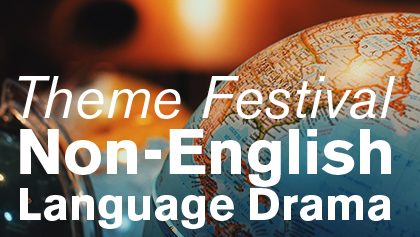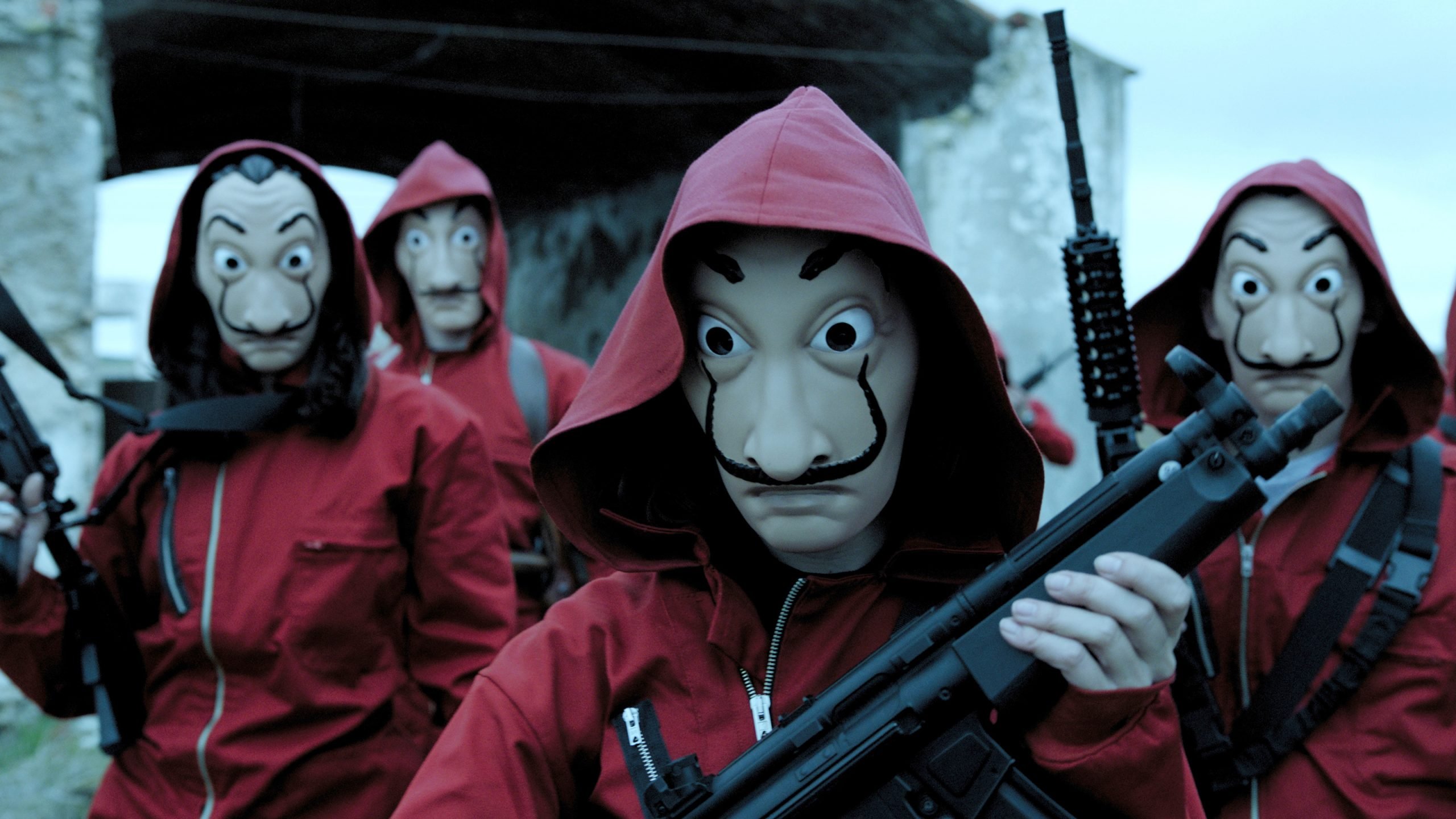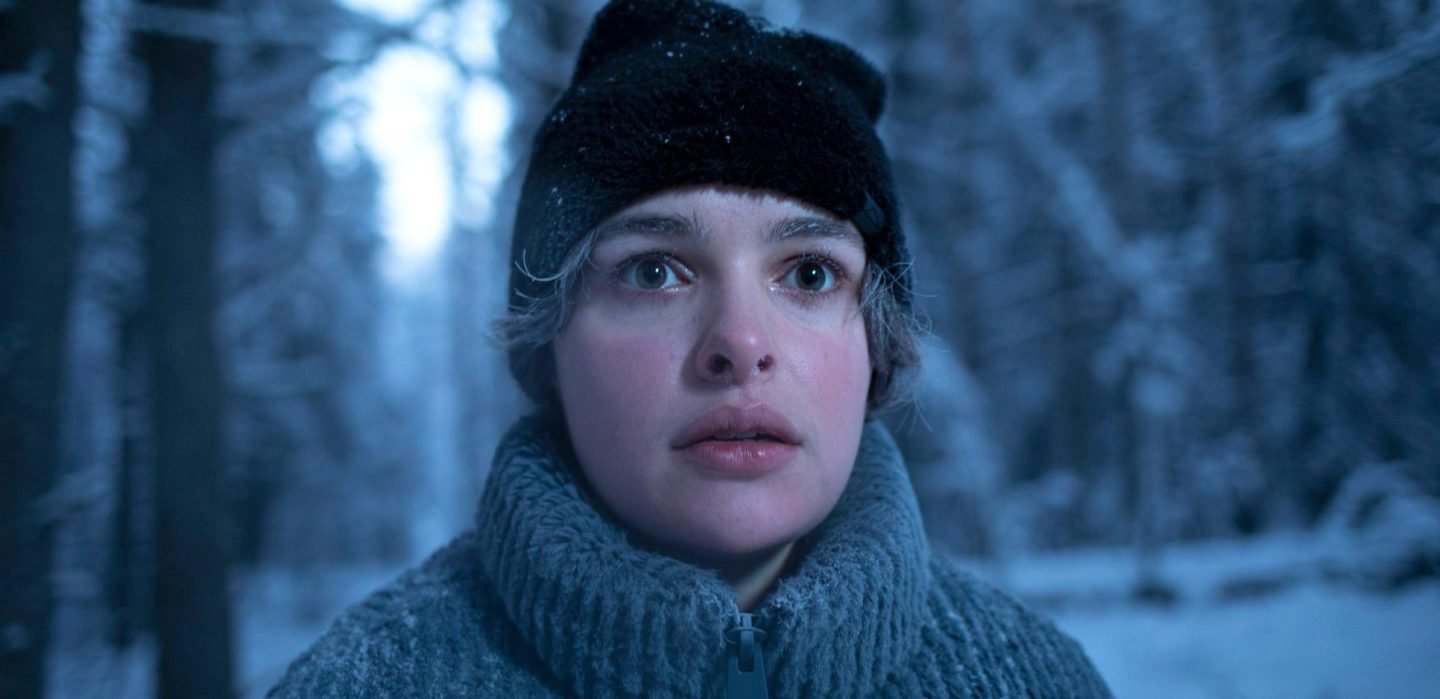Theme Festival - Non-English Language Drama

The Covid-driven streaming boom of the past year has increased opportunities for producers and distributors of non-English-language drama, and all the new global players now realise they need local produce in order to grow.
Demand for dramas in languages other than English was already rising long before lockdown, but the events of the past 14 months, and the pandemic-driven boost to streaming services provided by stay-at-home audiences, has lifted global demand for non-English-language drama even further.
Netflix, for instance, said at the end of last year that US viewing of its foreign-language shows increased by over 50% in 2020 compared with 2019, pointing to content such as The Platform (from Spain), Barbarians (Germany) and Rogue City (France). Meanwhile, viewing of Korean dramas including Kingdom and The King: Eternal Monarch almost tripled in the US and Netflix’s audiences for animé titles more than doubled in the US.
“The foreign-language barrier has been breached and it has changed the landscape. In some instances, it means there are huge hits that were not previously available. Plus, foreign-language content can cut costs, as it tends to be less expensive than mainstream content,” explains Bruce Tuchman, co-chairman of international streaming service Rialto International. “Shows like the Spanish-language Money Heist [aka La Casa de Papel] would not have performed well 10 or 15 years ago. But now that show is doing wonders for Netflix.”

This burgeoning appetite for watching subtitled dramas, coupled with the slowdown of stateside production due to lockdown, has also seen changes at HBO in the US. The premium cable network recently aired two non-English-language dramas from its sibling HBO Europe: Spanish horror series 30 Coins and Swedish drama Beartown.
“Both internally and from the perspective of audiences, there’s much more receptivity now to non-English-language programming. And we’re in a great place to bring the best of the best, the best in class to those audiences and help build that,” says Anthony Root, head of original production for EMEA at HBO parent WarnerMedia.
And it’s not just in the US where this appetite for non-English-language drama is booming. “Audiences all around the world have woken up to the fact that not everything has to be in English,” says veteran international acquisitions boss and TVNZ alumnus Andrew Shaw from New Zealand.

“The streamers have certainly woken up to it and realise that if you want to be in business in India, for example, you better be telling Indian stories. Foreign-language content is no longer necessarily a barrier to commercial success. To say that the future for creative television production in New Zealand for the world market is absolutely in the English language is to lose sight of the changing nature of our communities.”
The growing demand for local-language content among the streamers is acknowledged by Israel-based distributor Keshet International, where chief operating officer and president of distribution Keren Shahar recently unveiled a slate of new scripted series including Line in the Sand, Furia, You Don’t Die Among Friends and Grüpa, in languages including Hebrew, German, Norwegian and Serbian. “With the dramas being non-English-language, they would be appealing to the global streamers that are looking to grow their international subscribers and that have been seeing more success with foreign-language dramas,” Shahar says.
French dramas and comedy-dramas, furthermore, are also hot at the moment, according to Tim Mutimer, exec VP for sales and acquisitions in EMEA at global distributor Banijay Rights. He says the advent of Netflix, Amazon and Apple TV+ as coproduction partners and distributors has bolstered the profile of French output enormously.

“Such platforms have taken non-English-language [content] to audiences around the world, so there is more of an appetite than there used to be,” he says. “When you see the success of Lupin on Netflix… having something that isn’t filmed in English is not the barrier that, once upon a time, it would have been.”
This appetite for French-language content is not only boosting opportunities for French producers but also those in French-Canada, where Québécois companies see the time is right for them to step further on to the global stage. “Quebec’s unique position as a generator of French-language media in North America makes our productions both distinctive and highly exportable, bridging European and American cultures,” says Louise Lantagne, CEO and president of Quebec cultural agency SODEC.
This rising demand for European content in non-English languages was underscored by a report presented during the TV Drama Vision strand of the Göteborg Film Festival earlier this year. The eighth edition of the festival’s regular Nostradamus Report, compiled by media analyst Johanna Koljonen, highlights industry trends and, as well as industry consolidation and virtual production, global demand for non-English-language content was high on the list.
The rise in streaming, while on a global scale and driven by US companies, has also seen a rise in interest in European content. The report says that French and Nordic dramas, in particular, are travelling well, partly because the pandemic has hit production and streamers need their libraries filling. This will also increase demand over the next few years.

At the Swedish event, Walter Iuzzolino, co-founder and curator of UK non-English-language drama VoD service Walter Presents, urged European prodcos to take the initiative and position themselves to capitalise on this trend. “This is an incredible opportunity for Europe to completely reassert its broadcasting identity,” he told Göteborg delegates. “There is a real commonality in our depth and curation of content which you never find from American-style content.”
And the dramatic growth in global streaming has changed the priorities in Hollywood. In the past, the English-speaking North American audience has been the most important demographic to US studios. Now, however, Netflix’s audiences in the rest of the world outnumber its North American viewership. This globalisation will help European content, but the Nostradamus Report calls for governments to “respond to changes in production and distribution.”
Iuzzolino added: “Broadcasters need to go to their governments and say, ‘We need this money, but we have some thoughts about how to monetise it.’ This content will have to pool into an EU-wide SVoD content collection that markets itself globally to every other country. You’d preserve the broadcasting culture of each country. But at the macro level, you create an extraordinary curated ecosystem of the best European culture, a sharp commercial pool bringing it all together and monetising it globally. Either you get a macro solution or you wilt into insignificance.”

The uptick in demand for non-English-language drama has allowed Walter Presents to expand its global presence in recent months. Australian streamer Stan, for instance, signed its first deal with the service earlier this year, bringing ZDF Enterprises titles including Danish thriller Grow, Italian series Standing Tall and Swedish/German copro Top Dog to Stan subscribers. Also part of the agreement is German series Sløborn, Film.UA’s Ukrainian crime noir Hide & Seek, as well as Belgian family drama Beyond Appearances.
Also capitalising on this demand are other foreign-language services, such as new player Europa+. Owned and operated by Atlanta-based production and distribution company Castalia Communications, together with Mexican investment fund Innokap, the fledgling SVoD service recently launched across Latin America and the Caribbean with a 1,500-hour library of European fare.
Europa+, also known as Europa Más, is pitched squarely at the region’s European ex-pats but also hopes to appeal to locals looking for alternative content, says Luis Torres-Bohl CEO of Europa+ and president of Castalia Communications. “You have all those in Latin America who have an interest in general French, Italian, British, German television, or they just want to watch something good,” he says.

Europa+ is focusing primarily on content from the UK, France, Germany and Italy, plus the Nordic countries. Ninety-five percent of its content is subtitled into seven languages: Spanish, English, Italian, German, French, Norwegian, Swedish and/or Danish. The plan over time is to add content from Portugal, Spain and Eastern Europe as well as expand the service into Brazil, which will require Portuguese subtitling.
As well as the Hollywood studios expanding into the fast-growing non-English-language sector, as described by Iuzzolino, other production companies in the English-language space are, naturally, following suit. Gangs of London producer Pulse Films, for example, recently told C21 it is looking to work with talent in Africa, Latin America and Asia Pacific to capitalise on the rise in demand for non-English-language scripted content.
“Audiences are clearly embracing stories from different cultures, languages and locations. The tricky bit with Hollywood is that a lot of stories have been told in that setting. If you put storylines in more exotic settings, like Manila or Lagos or Milan, the same story that might feel familiar in the US suddenly rises up and delivers something else to an audience,” says founder and CEO Thomas Benski.
As the world gets smaller and globalisation brings different cultures closer together, all available via streaming, it seems the need for local voices and content is only getting more pronounced. And for producers and distributors outside the traditionally dominant export markets, this can only mean one thing: opportunity.